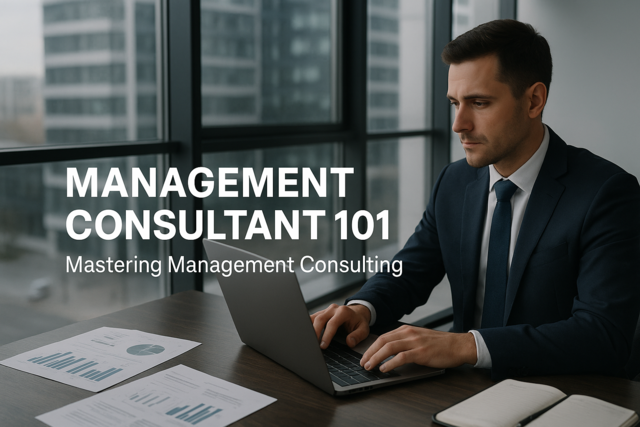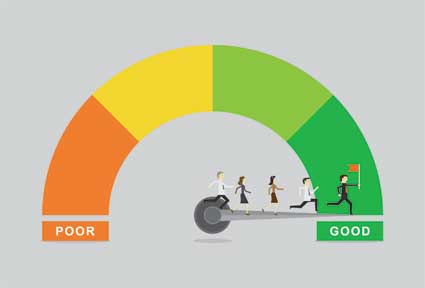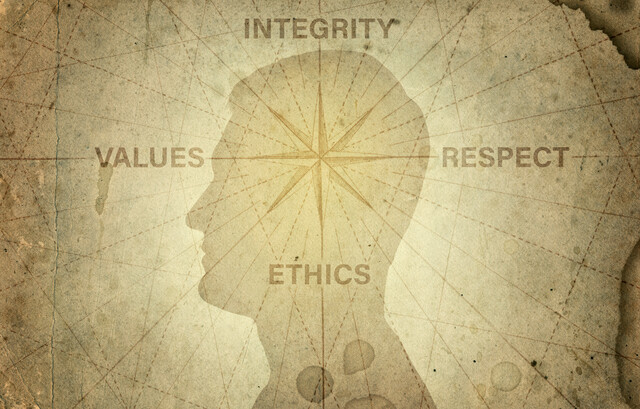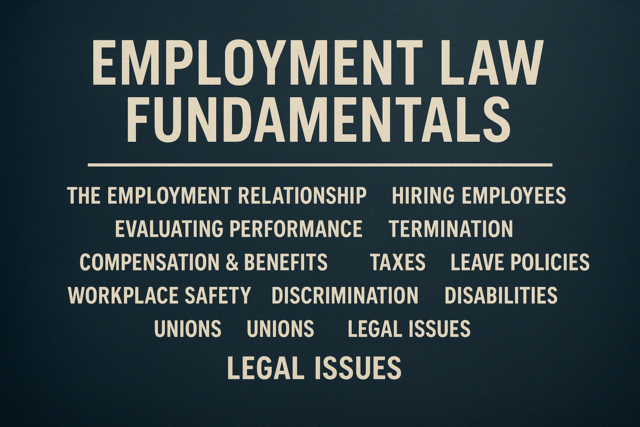Introduction: Human nature has provided the ability to make decisions. How those decisions are made, however, is up to each individual. From experience, most of us know that making some decisions is not as important as making other decisions. But creating a mindset that uses strategic thinking is the only way you will truly make strategic decisions for strategic planning in all areas of your life.
Developing a mindset that can lead you forward to financial success, as well as success in all parts of life, is the only way you will be able to earn wealth without inheriting it. And probably the only way you will maintain your wealth successfully, if you do inherit it. The right mindset comes from self-examination, making decisions that are about better health, improved knowledge and skills, and hard work to make your improved lifestyle habitual.
Without the right mindset, a person does not have the strength of character to be the person he or she wants to be, to continually improve or to maintain those improvements.
Quite possibly, the most difficult part of creating the mindset of a millionaire is self-examination. Self-examination will be addressed. Without an honest and difficult look within ourselves, we cannot make competent change. This is the beginning of the road to changes, and if you don't work to get this mindset that will establish new habits and build character, you simply will not change. The mind is our guide. We follow how we think. We act from what we value and believe and we find values and beliefs by processing our experience in our minds. If we have a closed mindset, we will not change. The mindset must be established as the basis for any progress in life. It must be set to be open to new ideas, to people who are diverse, and to stepping outside of the comfort zone.
Seeing Ourselves and Seeing How Others See Us: When you are ready to start a process of change, there is only one first step, and that is a self-examination. To do this in a powerful and dynamic way, you have to get several days alone. It is a process that you must take seriously. It requires deep introspection. If you cannot commit to this, then you aren't ready to commit to what it takes to build wealth.
A self-analysis will require you to write things down, to ponder, and be as honest with yourself as you possibly can. First just take some large paper and a marker and put up a T chart. Put down on one side all the things that get in the way of maximizing a millionaire mindset, and on the other side, those characteristics and skills that will aide in your goals. Take your time. Look at your skills, the way you work, think, and even eat. Don't give yourself false credits. Be honest.
This next part is different. Think about comments others have made to you over the years. Were some of their compliments contrived just to be nice? Were some of their words very general, something you'd say to anyone? Most people say things that will not inflict emotional pain on others. We rarely get the truth. Do you cling to a positive comment and cuddle up to it often to try and feel better about what you do? Have people told you what you want to hear, or complimented you just to boost your spirits or your self-esteem? What is it that you weren't told? This will take more discretionary thinking, but it is important. Getting self-worth from others can be a problem, because of this very thing.
On the other hand, if you sing a solo and people say you did a good job, but move on and don't really look amazed at your singing, you can probably count on the fact they were just being nice. If you are not good, who is really going to tell you? A good friend is someone who will get gut honest with you, not placate you. Have you been called to perform in other places? If you write, do you get repeat clients? Do you get promotions or mentions or special thumbs up from the boss? Think carefully about these things and write down what you think your co-workers and friends and family really think about you?
How about your family? Do they brag about you to others, or seem to enjoy your company? Do they ask to do things with you? Sometimes the biggest expression of what somebody thinks is done by silence. Is it possible to see our own shortcomings? In various studies about self-perception, they showed that people, in general, seem to think more highly of themselves than others do. They think they are smarter, funnier, popular, and knowledgeable. Most of us could agree with that.
Examine your work ethic. Are you late to work often? Do you slide when you can, or do you work to satisfy all requirements expected of you? Do you support those in your family, or not care? Do you work to continually learn and grow in knowledge? What about your social skills? Are they crude, acceptable, or do you get complaints from time to time? What does your spouse say in anger? It is probably the truth. Though sometimes we say things in anger just to hurt the other person; if not true, those words are more than likely close to the truth.
How about money? Are you aware of where yours goes? Can you be honest about how much money you spend wastefully? Are you disciplined at saving, being frugal, and watching the cost of things rise, and the things you think you need also rises? Do you put on a fa�ade to appear richer than you are? Do you talk like you have no money troubles, when you owe so much on your credit cards that your credit cards cannot be paid off in total when the bill arrives? Maybe you move money around to cover things, because you are so extended. Do you spend above your means and ignore discussing finances at home?
What about your values? Do you say one thing, and act differently? Do you say you value saving, but spend excessively? Do you make excuses or pretend everything is fine, when it's not? Evaluate what you believe, and then write down how you behave -- the good and the bad. Don't give yourself a pass on anything.
This should be a time for a clearing of the mind -- a total sweep of the parts of your life that do not connect to successful thinking.
What You Don't Know That You Don't Know: It's a funny mind trick. We think our brain keeps lots of knowledge, but comparatively -- does it really? Of all the things there are in the world to know, we actually know very little, and we have no clue about things we have no knowledge of. We close ourselves off to improvement and learning, because we think we have enough. It is never enough. Life is filled with change, new inventions, new ideas, and new probabilities. Any time a person thinks they've reached their limit in learning, they have stopped personal progress. Learning doesn't necessarily mean going back to school. It can be taking some professional development online, learning a new skill, a new language, a musical instrument, or simply reading diverse books or other reading material. If you stop gaining new information, you will be lost in today's world. Think of how much the older generations miss if they refuse to become computer literate? We become obsolete, if we do not continually learn. If we are investing money, you can get advice from a financial adviser, which is great, but that doesn't mean you can ignore your due diligence to know as much as you can about his advice. Opportunities, a glimpse at the whole world, and a look into science in a very technical and real manner can all be gotten from the Internet. Never before has the everyday person had so much at their fingertips.
Today you can go online and search for anything and anyone. To think you have learned it all is laughable. No one will ever learn it all. Children today know so much more about using technology than the average adult, because they look at it like a game, a new discovery just waiting to be opened. Child mode makes children more receptive to new and different things, because their everyday experience is with new and diverse learning. Think of how much a child learns before he gets to school, simply by interacting with others, watching, and listening. Just think of how much more we could learn if we claim some of that child-mode behavior back.
The mindset of a millionaire is more like that of a child's mindset. Their minds are permanently open to opportunities, knowledge, people, and ideas. They rarely close their thinking until sleep captures them. Sleep is the remedy for brain revival, so it can begin again the next day with fresh processing of new and old information. Sleep, healthy play, physical activity, learning new things, and building a mental file cabinet of people, their actions, the meaning of what they perceive, and decoding through the senses as they move through each day is an amazing wonder. Part of attaining the millionaire mindset is actually resetting our thinking to that found in childhood.
Insure Against Risk: Another part of the self-assessment is to make notes of how you insure the risks you take. Risks are anything that you do or say that have some potential for loss. Loss of money, the things you own and cherish. So make a new list of all you own and cherish. Which would cause grief and difficulty if you lost them, or lost their use. You might list your health, your cars, home, family, work, life, and knowledge and skills. Then check them off, if you know they are not only insured, but you know for how much. If you don't have good insurance against these things, what would happen? Don't depend on luck. Health can be lost in a moment, as can life. To put together a mindset for success in reaching your target goals, the worry about loss must be gone. It can only go away if you have some type of insurance to protect you. Maybe your insurance for job loss is you learning new skills on the computer, and knowing how to start your own business. Insurance that your marriage remains healthy may be spending time alone with your spouse and kids frequently.
All things you cannot live without must be insured by some action that you take. Insurance for these must be intentional. That means you have to know what worth everything has for you, and know how to maintain that worth. Becoming a millionaire is a lifelong vocation.
There will be setbacks, but don't consider them failures. Consider every setback as feedback from life about how you are doing, and what isn't working. Pay a lot of attention to them and learn, readjust, and plan how you will learn from the experience. It might mean changing the way you work, the speed at which you feel it's necessary to take the steps toward wealth, or the methods you use to invest and save money. Remember that it has taken a long time to earn your money and it didn't come easy. So investing that income, spending that income, or whatever you decide to do with it should not be decided without spending the same kind of time and effort. Your life has to change to reflect what you have determined your goals. Sometimes a person may get to the point where he has to confess he just doesn't have the energy, stamina, or perseverance to go the distance. The argument to that is: slow down. Investments will come around, and you may miss a good one. That is okay. It is better to miss a good investment than to put money into one hurriedly, and without study and knowledge.
Much of the time, the biggest mistake made in developing strategic brain processing, is going at it too fast. If you lose what you cherish, because you're not taking time to do it right, it will cost you more in the long run. This is a lifetime affair you are having with wealth. Keep the excitement, the positive flow of energy, and the sense of discovery.
Summary: Having strategic thinking and a clear mindset before you make changes is requisite to making your plans, following through with them, and moving down the path toward making a million dollars. Knowing why this is important is demonstrated in the decisions we make, the actions we take, and the life we lead. Knowing that setbacks aren't failures, but things to work harder at, and then you do, will give you the buoyancy to move onward and upward.
Understanding that a self-examination is imperative to seeing yourself in bright lights, not to make you feel depressed about where you are not, but to make you feel energized about all the things you can do right now to make changes and start the trip. Take responsibility for your own life and your own goals, because if you don't you will be blown about by the winds of the world and you will lose where you are and why you are living.
Admit that you know very little. Find a place to begin that will start right away to affect the way you think, then act, and then manage life. Forget about making a plan to acquire your million, until you have chopped apart your thinking and remolded it into a strong and effective working machine.
Finally, provide insurance against loss. Once you open your whole brain, your will be able to figure it out.
Example: Kelsey decided she wanted to be wealthy. She began to plan how that would happen. She decided she would have to go to college to be a doctor or a lawyer or another career that paid a large salary. Kelsey enrolled in school, and halfway through her first degree, she found she could not keep up with the work. At the rate she was going, it would take her five years just to grab a bachelor's degree, and then there would be graduate school and medical school. She noticed that the tech field and software development would be a good place, so she changed majors and it still took her five years to graduate, because of the switch. She went to work for a big firm, but found she really wasn't happy there, so she switched companies. After three years, she decided she needed to take some time to decide how she really wanted to spend her life.
Consider this:
1. Learning the art of negotiation can save lots of money over the years. Negotiate everything.
2. Risk must be met with the question, "What is the worst scenario?" When you know what it will mean to lose something, you can decide how to best insure against that possible loss.
3. Meeting new people as you go through life can affect your income as much as knowing about lots of companies. Other people are a wealth of information. It is a free resource, so use it.
4. The more you open up and communicate with your family the more support you will get from them, and your children can learn through you to think strategically.
5. Working hard does not mean you work 24/7. Good health is often the result of spending time with those you love, and being social.





























